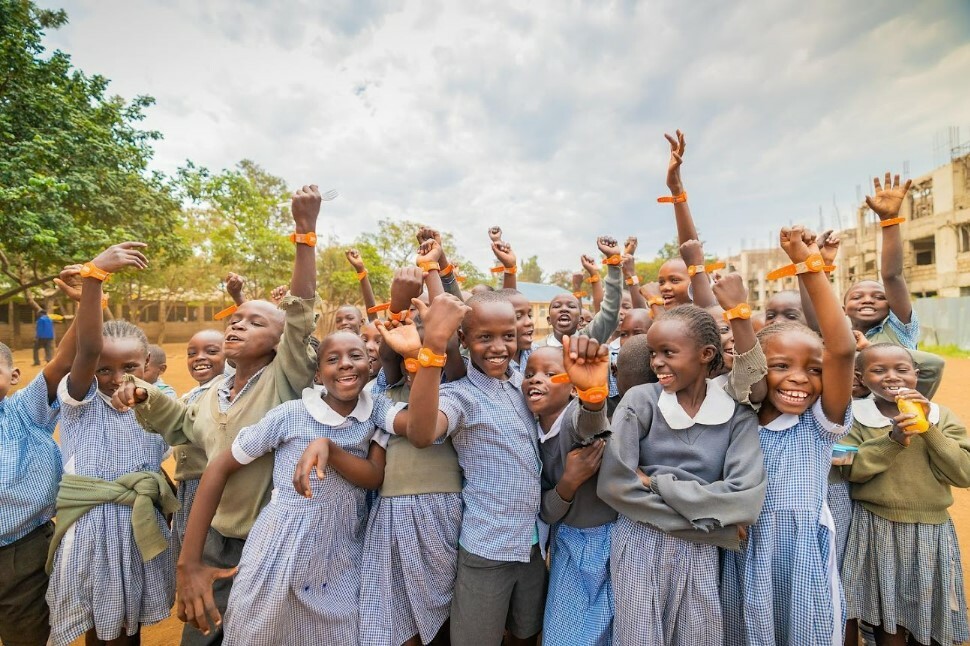Manchester, UK: Ingredion Kenya is part of a public-private partnership that will provide 2.4 million malnourished school-age children with a nutritious, ready-to-drink ‘super porridge’ by 2025.
Funded by the Ministry of Education via the National Council for Nomadic Education in Kenya (NACONEK), the project aims to combat hunger and malnutrition experienced by school children in the arid and semi-arid regions of Kenya and to improve school attendance and educational performance. By addressing malnutrition at its core, this initiative not only promises a brighter future for these children but also serves as a beacon of hope for combating malnutrition on a larger scale in Kenya and beyond.
The public-private partnership is the first of its kind in Africa, bringing together three global food and beverage companies — DSM, Ingredion, Tetra Pak — as well as the Government and other partners to make life better for millions of children and improve the livelihoods of thousands of farmers.
Made from locally sourced crops, including maize, soybeans, sorghum, and sweet potato, the initiative is also committed to supporting the regional economy, with 12,000 small-scale farmers contracted to supply the raw materials. The ready-to-drink ambient porridge is sweetened using a sweetener produced from the stevia plant, fortified with 15 micronutrients, and processed and packed in a Tetra Brik Aseptic 250ml pack with a straw.
Kennedy Ouma, Director, Africa and Middle East at Ingredion, says: “This is a very emotionally fulfilling project to be involved in, as we are bringing our purpose to life by making life better for underprivileged children by improving their nutrition and getting them back to school. The current launch covers 50,000 children this year, rising to 100,000 in 2024 and then upscaling to 2.4 million by 2025 as the funding increases.
“This is a collaborative project, with all partners working together to secure a successful outcome from the onset. The core objective was formulating an affordable and nutritious product based on climate-resilient crops with a minimum 6 months shelf life for ease of distribution and storage, as the arid regions of Kenya lack clean water and cold storage due to lack of electricity. Ingredion’s role was to provide the stabilising, texturizing, and sweetening solutions expertise which was done through numerous trials by our teams in Nairobi, Johannesburg, and Luebeck (Germany) idea labs and pilot plant facilities.”
“Overall goal was to develop a nutritious product with good taste and texture liked by children adds Kennedy.
Training on food safety, product storage, and hygiene form part of the programme, while the used carton packaging will be recycled and converted into boards that will be used to make chairs and desks which will be donated to the schools covered in the programme.
Every year, around three million children drop out of school due to drought in Kenya’s arid and semi-arid regions. Data on school attendance, educational performance, and the health and physical development of the children will be collected as part of the impact assessment.
Mike O’Riordan, Regional President, EMEA at Ingredion, concludes: “I am really proud of our team for skilfully collaborating with multiple key stakeholders to make life better for Kenya’s future generation.”
The project involves the following partners: Kenya Ministry of Education, Science and Technology, the National Council for Nomadic Education in Kenya (NACONEK), DSM, Ingredion, Jetlak Foods Limited, Qatar Foundation, Tetra Pak, Unibrain Industries Ltd, and UNICEF. Financial and other support in kind will go a long way in helping this public-private partnership initiative upscale and cover more than 2.4 million malnourished children in the arid regions and informal settlements in Kenya by 2025.
Source : Asia Food















